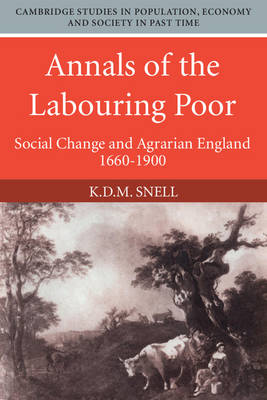This collection of inter-connected essays is concerned with the impact of social and economic change upon the rural labouring poor and artisans in England, and combines a sensitive understanding of their social priorities with innovative quantitative analysis. It is based on an impressive range of sources, and its particular significance arises from the pioneering use made of a largely neglected archival source - settlement records - to address questions of central importance in English social and economic history in the eighteenth and nineteenth centuries. Levels of employment, wage rates, poor relief, the sexual division of labour, the social consequences of enclosure, the decline of farm service and traditional apprenticeship, and th equality of family life are amongst the issues discussed in a profound re-assessment of a perennial problem: the standard of living (in its widest sense) of the labouring poor during the period of industrialisation. The author's conclusions challenge much of the prevailing orthodoxy, and his extensive use of literary and attitudinal material is closely integrated with the quantitative restatement of an interpretation that owes much to the older tradition of the Hammonds' Village Labourer.
- ISBN13 9780521335584
- Publish Date 2 April 1987 (first published 2 May 1985)
- Publish Status Active
- Out of Print 6 June 2022
- Publish Country GB
- Imprint Cambridge University Press
- Format Paperback (US Trade)
- Pages 476
- Language English
